List of Presidents of France
 |
| This article is part of a series on the politics and government of France |
|
Related topics |
| France portal |
|
Politics portal |
This is a list of presidents of France. The first President of France is considered to be Louis-Napoléon Bonaparte (later Napoleon III), who was elected in the 1848 election, under the French Second Republic. The current President is François Hollande, since 15 May 2012. He took office following the 2012 election.
First French Republic (1792–1804)
Presidents of the National Convention
After 1793, President of the National Convention became a puppet office under the Committee of Public Safety
Presidents of the Committee of Public Safety
- Political parties
Montagnard
Thermidorian
Marais
| Nº | Portrait | Name (Birth–Death) |
Term of Office | Political Party | Ref. | |
|---|---|---|---|---|---|---|
| 1 |  |
Georges Danton (1759–1794) |
6 April 1793 | 27 July 1793 | Montagnard | [1] |
| When all executive power was conferred upon a Committee of Public Safety, Danton had been one of the nine original members of that body. He was dispatched on frequent missions from the Convention to the republican armies in Belgium, and wherever he went he infused new energy into the army. He pressed forward the new national system of education, and he was one of the legislative committee charged with the construction of a new system of government. | ||||||
| 2 |  |
Maximilien Robespierre (1758–1794) |
27 July 1793 | 27 July 1794 | Montagnard | [2] |
| When Robespierre took the power, the "Reign of Terror" was established. Monarchists, Girondists, Modérés but also commonly citizens were guillotined. The Roman Catholicism was replaced by the Cult of the Supreme Being. After one year of absolute power, Robespierre was deposed by the Thermidorian Reaction and executed. | ||||||
| 3 |  |
Jacques Nicolas Billaud-Varenne (1756–1819) |
31 July 1794 | 1 September 1794 | Montagnard | [3] |
| After the Robespierre's execution, Billaud-Varenne, that was one of traitors, became the acting chief of the Committee of Public Safety. He was then attacked himself in the Convention for his ruthlessness, and a commission was appointed to examine his conduct and that of some other members of the former Committee of Public Safety and decreed his immediate deportation to French Guiana. | ||||||
| 4 | 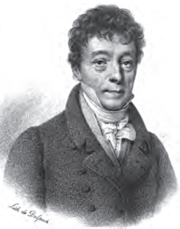 |
Philippe-Antoine Merlin de Douai (1754–1838) |
5 March 1795 | 5 April 1795 | Thermidorian | |
| After the Thermidorian Reaction, he became president of the Convention and a member of the Committee of Public Safety. Merlin de Douai convinced the Committee of Public Safety to agree with the closing of the Jacobin Club, on the ground that it was an administrative rather than a legislative measure. Merlin de Douai recommended the readmission of the survivors of the Girondists to the Convention, and drew up a law limiting the right of insurrection. | ||||||
| 5 |  |
Jean Jacques Régis de Cambacérès (1753–1824) |
5 April 1795 | 2 August 1795 | Marais | |
| Cambacérès was considered too conservative to be one of the five Directors who took power in the coup of 1795, and finding himself in opposition to the nascent Executive Directory he retired from politics. | ||||||
| 6 |  |
Philippe-Antoine Merlin de Douai (1754–1838) |
2 August 1795 | 1 September 1795 | Thermidorian | |
| 7 |  |
Jean Jacques Régis de Cambacérès (1753–1824) |
1 September 1795 | 27 October 1795 | Marais | |
President of the Directory
- Political parties
| Nº | Portrait | Name (Birth–Death) |
Term of Office | Political Party | Ref. | |
|---|---|---|---|---|---|---|
| 1 |  |
Paul Barras (1755–1829) |
5 October 1795 | 10 November 1799 | Thermidorian | |
| Along with Jean-Lambert Tallien and Joseph Fouché, Barras was one of the minds behind the coup of 1795. His nomination of Napoleon Bonaparte led to the adoption of violent measures, ensuring the dispersion of royalists and other malcontents in the streets near the Tuileries Palace, remembered as the 13 Vendémiaire. Barras much weakened the monarchists and the old Girondists with the coup of 18 Fructidor in 1797. However, he was deposed by the coup of 18 Brumaire of Bonaparte in 1799. | ||||||
The Consulate
| The provisional Consuls (10 November – 12 December 1799) | ||
|---|---|---|
 |
 |
|
| Napoleon Bonaparte | Emmanuel Joseph Sieyès | Roger Ducos |
| With the coup of 18 Brumaire in 1799, the Directory was abolished, and a provisional committee of three, called "consuls" took power. | ||
| The Consuls (12 December 1799 – 9 May 1802) | ||
 |
 |
%2C_French_statesman_(small).jpg) |
| Napoleon Bonaparte First Consul |
J.J. Cambacérès Second Consul |
Charles-François Lebrun Third Consul |
| With the Constitution of the Year VIII two months later, Bonaparte became "First Consul" for ten years, with two consuls appointed by him who had consultative voices only. | ||
Consulate for Life
- Political parties
| Nº | Portrait | Name (Birth–Death) |
Term of Office | Political Party | Ref. | |
|---|---|---|---|---|---|---|
| 1 |  |
Napoléon Bonaparte (1769–1821) |
9 May 1802 | 18 May 1804 | Bonapartist | [4][5] |
| Bonaparte's power was confirmed by the new "Constitution of the Year X", that preserved the appearance of a republic but in reality established a dictatorship by getting rid of the other two consuls in all but name. He became Emperor of the French in 1804. | ||||||
The Revolution of 1830
For a few days during the July Revolution, Gilbert du Motier, Marquis de Lafayette held executive power and was offered the Presidency of a Republic. He refused.
Second French Republic (1848–1852)
President of the Provisional Government of the Republic
- Political parties
| Nº | Portrait | Name (Birth–Death) |
Term of Office | Political Party | Ref. | |
|---|---|---|---|---|---|---|
| – |  |
Jacques-Charles Dupont de l'Eure (1767–1855) |
24 February 1848 | 20 December 1848 | Moderate Republican | |
| None | ||||||
| His prestige and popularity prevented the heterogeneous republican coalition from having to immediately agree upon a common leader. Due to his great age (upon entering office, he was just a few days short of his 81st birthday), Dupont de l'Eure effectively delegated part of his duties to Minister of Foreign Affairs Alphonse de Lamartine. On 4 May, he resigned in order to make way for the Executive Commission, which he declined to join. | ||||||
Executive Commission
- Political parties
| Nº | Executive Commission (10 May 1848 – 24 June 1848) | Political Party | Ref. | ||||
|---|---|---|---|---|---|---|---|
| – | François Arago | Alphonse de Lamartine |
Louis-Antoine Garnier-Pagès |
Alexandre Auguste Ledru-Rollin |
Pierre Marie (de Saint-Georges) |
Moderate Republican | [6][7][8] |
 |
 |
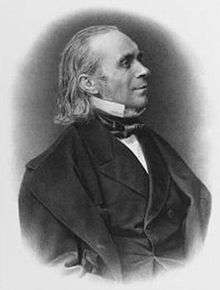 |
 |
.jpg) | |||
| In May 1848 the National Assembly decided to establish the Executive Commission as a form of collective presidency, similar to that of Year III in the first French Revolution. The members were chosen from prominent members of the former Provisional Government. These members acted jointly as head of state. The experiment was a failure and lasted slightly more than a month before chaos rocked Paris and much of the country. | |||||||
Chief of the Executive Power
- Political parties
| Nº | Portrait | Name (Birth–Death) |
Term of Office; Electoral mandates |
Political Party | Ref. | |
|---|---|---|---|---|---|---|
| – |  |
Louis-Eugène Cavaignac (1802–1857) |
28 June 1848 | 20 December 1848 | Moderate Republican | |
| None | ||||||
| On 24 June, the Executive Commission was defeated by a vote of no confidence and Cavaignac was granted full powers, making him France's de facto head of state and dictator. After laying down his dictatorial powers, he continued to preside over the Executive Committee till the election of a regular president of the republic. | ||||||
President of the Republic
- Political parties
| Nº | Portrait | Name (Birth–Death) |
Term of Office; Electoral mandates |
Political Party | Ref. | |
|---|---|---|---|---|---|---|
| 1 |  |
Louis-Napoléon Bonaparte (1808–1873) |
20 December 1848 | 2 December 1852 | Bonapartist | [9] |
| 1848 | ||||||
| Nephew of Napoléon I. Elected first President of the French Republic, in the 1848 election against Louis-Eugène Cavaignac. He provoked the French coup of 1851, and proclaimed himself Emperor of the French in 1852. | ||||||
Third French Republic (1870–1940)
President of the Government of National Defense
- Louis Jules Trochu (4 September 1870 – 13 February 1871)
Chief of the Executive Power
- Adolphe Thiers (17 February 1871 – 30 August 1871) (became President on 31 August 1871)
Presidents of the Republic
- Political parties
Independent
Moderate Monarchist
Opportunist Republican
Democratic Republican Alliance
Radical-Socialist Party
| Nº | Portrait | Name (Birth–Death) |
Term of Office | Political Party | Ref. | |
|---|---|---|---|---|---|---|
| 2 | Adolphe Thiers (1797–1877) |
31 August 1871 | 24 May 1873 | Independent | [10] | |
| Initially a moderate monarchist, named President following the adoption of the Rivet law. He became a Republican during his term, and resigned in the face of hostility from the Assemblée nationale, largely in favour of a return to monarchy. | ||||||
| 3 |  |
Patrice de Mac-Mahon, duc de Magenta (1808–1893) |
24 May 1873 | 30 January 1879 | Moderate Monarchist | [11] |
| A Marshal of France, he was the only monarchist (and only Duke) to serve as President of the Third Republic. He resigned shortly after the Republican victory in the 1877 legislative elections, following his decision to dissolve the Chamber of Deputies. During his term, the French Constitutional Laws of 1875 that served as the Constitution of the Third Republic were passed, and he therefore became the first President under the constitutional settlement that would last until 1940. | ||||||
| 4 |  |
Jules Grévy (1807–1891) |
30 January 1879 | 2 December 1887 | Opportunist Republican | [12] |
| The first President to complete a full term, he was easily re-elected in December 1885. He was nonetheless forced to resign, following an honours scandal in which his son-in-law was implicated. | ||||||
| 5 |  |
Marie François Sadi Carnot (1837–1894) |
3 December 1887 | 25 June 1894† | Opportunist Republican | [13] |
| His term was marked by boulangist unrest and the Panama scandals, and by diplomacy with Russia. †Assassinated (stabbed) by Sante Geronimo Caserio a few months before the end of his mandate, he is interred at the Panthéon, Paris. | ||||||
| 6 |  |
Jean Casimir-Perier (1847–1907) |
27 June 1894 | 16 January 1895 | Opportunist Republican | [14] |
| Perier's was the shortest Presidential term: he resigned after six months and 20 days. | ||||||
| 7 |  |
Félix Faure (1841–1899) |
17 January 1895 | 16 February 1899† | Opportunist Republican; Progressive Republican |
[15] |
| Pursued colonial expansion and ties with Russia. President during the Dreyfus Affair. †Four years into his term he died of apoplexy at the Élysée Palace, allegedly in flagrante. | ||||||
| 8 | 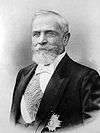 |
Émile Loubet (1838–1929) |
18 February 1899 | 18 February 1906 | Democratic Republican Alliance | [16] |
| During his seven-year term, the 1905 French law on the Separation of the Churches and the State was adopted, and only four Presidents of the Council succeeded to the Hôtel Matignon. He did not seek re-election at the end of his term. | ||||||
| 9 |  |
Armand Fallières (1841–1931) |
18 February 1906 | 18 February 1913 | Democratic Republican Party | [17] |
| President during the Agadir Crisis, when French troops first occupied Morocco. He was a party to the Triple Entente, which he strengthened by diplomacy. Like his predecessor, he did not seek re-election. | ||||||
| 10 |  |
Raymond Poincaré (1860–1934) |
18 February 1913 | 18 February 1920 | Democratic Republican Party | [18] |
| President during World War I. He subsequently served as President of the Council 1922–1924 and 1926–1929. | ||||||
| 11 |  |
Paul Deschanel (1855–1922) |
18 February 1920 | 21 September 1920 | Democratic Republican and Social Party | [19] |
| An intellectual elected to the Académie française, he overcame the popular Georges Clemenceau, to general surprise, in the January 1920 election. He resigned after eight months due to mental health problems. | ||||||
| 12 |  |
Alexandre Millerand (1859–1943) |
23 September 1920 | 11 June 1924 | Independent | [20] |
| An "Independent Socialist" increasingly drawn to the right wing, he resigned after four years following the victory of the Cartel des Gauches in the 1924 legislative elections. | ||||||
| 13 | 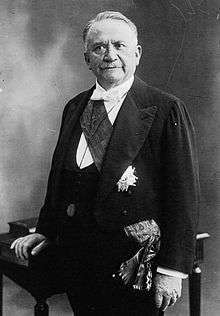 |
Gaston Doumergue (1863–1937) |
13 June 1924 | 13 June 1931 | Radical-Socialist Party | [21] |
| The first Protestant President, he took a firm political stance against Germany and its resurgent nationalism. His seven-year term was marked by ministerial discontinuity. | ||||||
| 14 |  |
Paul Doumer (1857–1932) |
13 June 1931 | 7 May 1932† | Radical-Socialist Party | [22] |
| Elected in the second round of the 1931 election, having displaced the pacifist Aristide Briand. †Assassinated (shot) by the mentally unstable Paul Gorguloff. | ||||||
| 15 | .jpg) |
Albert Lebrun (1871–1950) |
10 May 1932 | 11 July 1940 (de facto) |
Democratic Alliance | [23] |
| Re-elected in 1939, his second term was interrupted de facto by the rise to power of Marshal Philippe Pétain. | ||||||
Acting presidents
Under the Third Republic, the President of the Council served as Acting President whenever the office of President was vacant.
- Jules Armand Dufaure (30 January 1879)
- Maurice Rouvier (2–3 December 1887)
- Charles Dupuy (25–27 June 1894, 16–17 January 1895 and 16–18 February 1899)
- Alexandre Millerand (21–23 September 1920)
- Frédéric François-Marsal (11–13 June 1924)
- André Tardieu (7–10 May 1932)
The office of President of the French Republic did not exist from 1940 until 1947.
French State (1940–1944)
Chief of State
| Nº | Portrait | Name (Birth–Death) |
Term of Office | Political Party | Ref. | |
|---|---|---|---|---|---|---|
| — | .jpg) |
Philippe Pétain (1856–1951) |
11 July 1940 | 19 August 1944 | Independent | |
| Pétain was the Chief of the French State from 1940 to 1944. A elder authoritarian military, Pétain issued fascist, clerical and anti-semitic laws under the Nazi Germany's supervisions. After the liberation of France in 1944, Pétain was imprisoned for life. | ||||||
Provisional Government of the French Republic (1944–1947)
Chairmen of the Provisional Government
- Brigadier General Charles de Gaulle (3 June 1944 – 26 January 1946)
- Félix Gouin (26 January 1946 – 24 June 1946)
- Georges Bidault (24 June 1946 – 28 November 1946)
- Vincent Auriol (interim) (28 November 1946 – 16 December 1946)
- Léon Blum (16 December 1946 – 16 January 1947)
Fourth French Republic (1947–1959)
Presidents
Political Party: Socialist (SFIO) Centre-right (CNIP)
| Nº | Portrait | Name (Birth–Death) |
Term of Office; Electoral mandates |
Political Party | Ref. | |
|---|---|---|---|---|---|---|
| 16 |  |
Vincent Auriol (1884–1966) |
16 January 1947 | 16 January 1954 | French Section of the Workers' International | [24] |
| 1947 | ||||||
| First President of the Fourth Republic; his term was marked by the First Indochina War. | ||||||
| 17 | 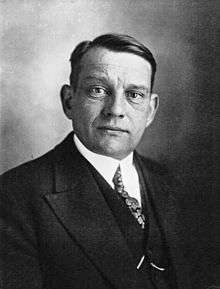 |
René Coty (1882–1962) |
16 January 1954 | 8 January 1959 | National Centre of Independents and Peasants | [25] |
| 1953 | ||||||
| Presidency marked by the Algerian War; appealed to Charles de Gaulle to resolve the May 1958 crisis. Following the promulgation of the Fifth Republic, he resigned after five years as President, giving way to de Gaulle. | ||||||
Fifth French Republic (1959–present)
Presidents
Political Party:
Socialist (PS) Centrist (CD) Republican (FNRI; PR) Gaullist (UNR; UDR; RPR) Gaullist/Centre-right (UMP)
| Nº | Portrait | Name (Birth–Death) |
Term of Office; Electoral mandates |
Political Party | Ref. | |
|---|---|---|---|---|---|---|
| 18 |  |
Charles de Gaulle (1890–1970) |
8 January 1959 | 28 April 1969 | Union for the New Republic (renamed Union of Democrats for the Fifth Republic in 1967) |
[26] |
| 1958, 1965 | ||||||
| Leader of the Free French Forces 1940-1944. President of the Provisional Government 1944–1946. Appointed President of the Council by René Coty in May 1958, to resolve the crisis of the Algerian War. He adopted a new Constitution, thus founding the Fifth Republic. Easily elected President in the 1958 election by electoral college, he took office the following month; he was re-elected by universal suffrage in the 1965 election. In 1966, he withdrew France from NATO integrated military command, and expelled the American bases on French soil. Having refused to step down during the crisis of May 1968, resigned following the failure of the 1969 referendum on regionalisation. | ||||||
| — | Alain Poher (interim) (1909–1996) |
28 April 1969 | 20 June 1969 | Democratic Centre | [27] | |
| Interim President, as President of the Senate. Defeated by Georges Pompidou in the second round of the 1969 election. | ||||||
| 19 | 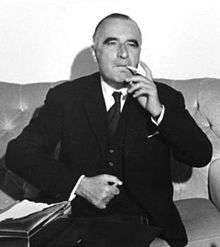 |
Georges Pompidou (1911–1974) |
20 June 1969 | 2 April 1974† | Union of Democrats for the Republic | [28] |
| 1969 | ||||||
| Prime Minister under Charles de Gaulle 1962–1968. Elected President in the 1969 election against the centrist Alain Poher. Favoured European integration. Supported economic modernisation and industrialisation. Faced the 1973 oil crisis. †Died in office of Waldenström's macroglobulinemia, two years before the end of his mandate. | ||||||
| — | Alain Poher (interim) (1909–1996) |
2 April 1974 | 27 May 1974 | Democratic Centre | [27] | |
| Interim President again, as President of the Senate. Did not stand against Valéry Giscard d'Estaing in the 1974 election. | ||||||
| 20 | .jpg) |
Valéry Giscard d'Estaing (1926–) |
27 May 1974 | 21 May 1981 | Independent Republicans (until 1977) Republican Party (from 1977) (within Union for French Democracy from 1978) |
[29] |
| 1974 | ||||||
| Founder of the FNRI and later the UDF in his efforts to unify the centre-right, he served in several Gaullist governments. Narrowly elected in the 1974 election, he instigated numerous reforms, including the lowering of the age of civil majority from 21 to 18, and the legalisation of abortion. He soon faced a global economic crisis and rising unemployment. Although the polls initially gave him a lead, he was defeated in the 1981 election by François Mitterrand, partly due to the disunion within the right wing. | ||||||
| 21 | .jpg) |
François Mitterrand (1916–1996) |
21 May 1981 | 17 May 1995 | Socialist Party | [30] |
| 1981, 1988 | ||||||
| Candidate of a united left-wing ticket in the 1965 election, he founded the Socialist Party in 1971. Having narrowly lost the 1974 election, he was finally elected in the 1981 election. He instigated several reforms (abolition of the death penalty, a fifth week of paid leave for employees). After the right-wing victory in the 1986 legislative elections, he named Jacques Chirac Prime Minister, thus beginning the first cohabitation. Re-elected in the 1988 election against Chirac, he was again forced to cohabit with Édouard Balladur following the 1993 legislative elections. He retired in 1995 after the conclusion of his second term. He was the first President elected twice by universal suffrage, he was the first left-wing President of the Fifth Republic, and his Presidential tenure was the longest of the Fifth Republic. | ||||||
| 22 |  |
Jacques Chirac (1932–) |
17 May 1995 | 16 May 2007 | Rally for the Republic (until 2002) Union for a Popular Movement (from 2002) |
[31] |
| 1995, 2002 | ||||||
| Prime Minister 1974–1976; on resignation, founded the RPR. Eliminated in the first round of the 1981 election, he again served as Prime Minister 1986–1988. Beaten in the 1988 election, he was elected in the 1995 election. He engaged in social reforms to counter "social fracture". In 1997, he dissolved the Assemblée nationale; a left-wing victory in the 1997 legislative elections, forced him to name Lionel Jospin Prime Minister for a five-year cohabitation. Presidential terms reduced from seven to five years. In 2002, he was re-elected against the leader of the extreme right-wing Jean-Marie Le Pen. Opposed the Iraq War. He did not run in 2007, he retired from political life and returned to the Conseil constitutionnel. | ||||||
| 23 | .jpg) |
Nicolas Sarkozy (1955–) |
16 May 2007 | 15 May 2012 | Union for a Popular Movement | [32] |
| 2007 | ||||||
| Served in numerous ministerial posts 1993–1995 and 2002–2007. Leader of the UMP since 2004. In the 2007 election, he topped the first round poll, and was elected in the second round against Ségolène Royal. Soon after taking office, he introduced the French fiscal package of 2007 and other laws to counter illegal immigration and recidivism. President of the Council of the EU in 2008, he defended the Treaty of Lisbon and mediated in the South Ossetia War; at national level, he had to deal with the financial crisis and its consequences. Following the 2008 constitutional reform, he became the first President since Louis-Napoléon Bonaparte to address the Versailles Congress on 22 June 2009. President of the G8 and the G20 in 2011. Defeated in the 2012 election. | ||||||
| 24 |  |
François Hollande (1954–) |
15 May 2012 | Incumbent | Socialist Party | [33] |
| 2012 | ||||||
| Served as Deputy for Corrèze 1 1988–1993, 1997; and as First Secretary of the Socialist Party 1997–2008. He was Mayor of Tulle 2001–2008, and President of the Corrèze General Council 2008–2012. The second left-wing President of the Fifth Republic. Elected in the 2012 election, defeating Nicolas Sarkozy. | ||||||

See also
References
- ↑ President of the Committee of Public Safety
- ↑ Informal President of the Committee of Public Safety, but also leading person in the National Convention. De facto, dictator in 1793–1794.
- ↑ Hugh Chisholm (1911). "Billaud-Varenne, Jacques Nicolas", Encyclopædia Britannica 3 (11th ed.). Cambridge University Press.
- ↑ François Furet, The French Revolution, 1770–1814 (1996), p. 212
- ↑ Georges Lefebvre, Napoleon from 18 Brumaire to Tilsit 1799–1807 (1969), pp. 60–68
- ↑ Agulhon 1983, p. 50.
- ↑ Robertson 1952, p. 79.
- ↑ Fortescue 2004, p. 101.
- ↑ "Louis-Napoléon Bonaparte (1808–1873)" (in French). Official website of the French Presidency. Retrieved 2 August 2010.
- ↑ "Adolphe Thiers (1797–1877)" (in French). Official website of the French Presidency. Retrieved 2 August 2010.
- ↑ "Patrice de Mac-Mahon (1808–1893)" (in French). Official website of the French Presidency. Retrieved 2 August 2010.
- ↑ "Jules Grévy (1807–1891)" (in French). Official website of the French Presidency. Retrieved 2 August 2010.
- ↑ "Marie-François-Sadi Carnot (1837–1894)" (in French). Official website of the French Presidency. Retrieved 2 August 2010.
- ↑ "Jean Casimir-Perier (1847–1907)" (in French). Official website of the French Presidency. Retrieved 2 August 2010.
- ↑ "Félix Faure (1841–1899)" (in French). Official website of the French Presidency. Retrieved 2 August 2010.
- ↑ "Emile Loubet (1836–1929)" (in French). Official website of the French Presidency. Retrieved 2 August 2010.
- ↑ "Armand Fallières (1841–1931)" (in French). Official website of the French Presidency. Retrieved 2 August 2010.
- ↑ "Raymond Poincaré (1860–1934)" (in French). Official website of the French Presidency. Retrieved 2 August 2010.
- ↑ "Paul Deschanel (1855–1922)" (in French). Official website of the French Presidency. Retrieved 2 August 2010.
- ↑ "Alexandre Millerand (1859–1943)" (in French). Official website of the French Presidency. Retrieved 2 August 2010.
- ↑ "Gaston Doumergue (1863–1937)" (in French). Official website of the French Presidency. Retrieved 2 August 2010.
- ↑ "Paul Doumer (1857–1932)" (in French). Official website of the French Presidency. Retrieved 2 August 2010.
- ↑ "Albert Lebrun (1871–1950)" (in French). Official website of the French Presidency. Retrieved 2 August 2010.
- ↑ "Vincent Auriol (1884–1966)" (in French). Official website of the French Presidency. Retrieved 2 August 2010.
- ↑ "René Coty (1882–1962)" (in French). Official website of the French Presidency. Retrieved 2 August 2010.
- ↑ "Charles de Gaulle (1890–1970)" (in French). Official website of the French Presidency. Retrieved 2 August 2010.
- 1 2 "Alain Poher (1909–1996)" (in French). Official website of the French Presidency. Retrieved 2 August 2010.
- ↑ "Georges Pompidou (1911–1974)" (in French). Official website of the French Presidency. Retrieved 2 August 2010.
- ↑ "Valéry Giscard d'Estaing (1926)" (in French). Official website of the French Presidency. Retrieved 2 August 2010.
- ↑ "François Mitterrand (1916–1996)" (in French). Official website of the French Presidency. Retrieved 2 August 2010.
- ↑ "Jacques Chirac (1932)" (in French). Official website of the French Presidency. Retrieved 2 August 2010.
- ↑ "Nicolas Sarkozy (1955)" (in French). Official website of the French Presidency. Retrieved 15 May 2012.
- ↑ "Biographie officielle de François Hollande" [Official biography of François Hollande] (in French). Official website of the French Presidency. Retrieved 15 May 2012.
| ||||||||||||||||||||||||||||||||||||||||||||||||||||||||||